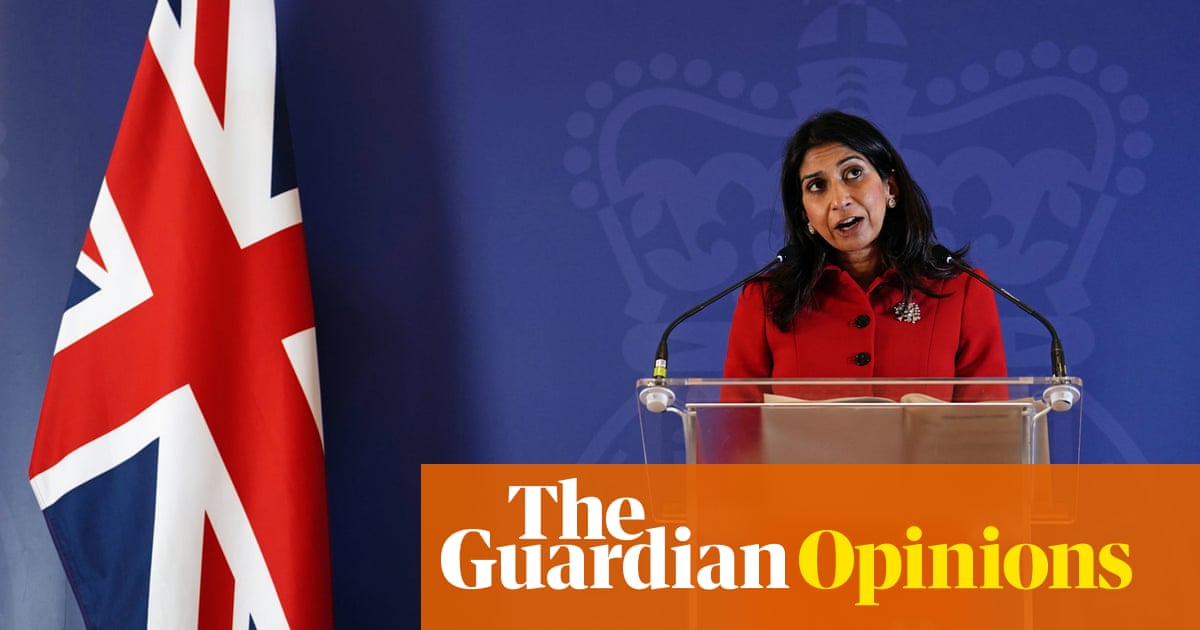
The world is hostage to what’s been called “a cycle of panic and neglect”. The Omicron variant, while we wait for clarification on its many unknowns, has sparked the latest bout of that panic. But it is a panic born directly of selfish insularity: as wealthy nations have amassed enough surplus vaccines to inoculate their entire populations many times over, in low-income countries just a small percentage have received even a single dose.
Even with the ambitious booster programmes, there are still plenty of unused doses sitting in the warehouses of western nations. So there’s no need to make a choice between vaccinating low-income countries or offering boosters in wealthy nations: we can still do both. New analysis from the data company Airfinity finds that, even with booster policies taken into account, in the G7 and EU there will still be close to 1.4bn surplus doses by the end of March 2022. It’s bordering on criminal that these are not being urgently airlifted to countries in need.
Three brief bursts of leadership by the leading economies this year have amounted to vanishingly little: in June the G7 summit in Cornwall pledged 1bn doses (far fewer than needed and still undelivered six months on); then in September, Joe Biden’s “global” vaccines summit proved a one-man press conference to announce a 500m deal of Pfizer vaccines, with Boris Johnson skipping the event entirely; and in October the Rome G20 ended with no solution for the crippling inequality of access.
Britain must shoulder a large portion of the blame. In the space of six months, the prime minister has gone from urging other G7 leaders to “vaccinate the world” in Cornwall, to delivering a lower proportion of promised doses than any of them (just 10% of the 100m doses have been delivered).
What’s more, government and corporate leaders – Johnson among them – are seeking shelter behind a dangerous falsehood: that the principal factor driving low vaccination rates isn’t one of supply, but hesitancy. Last week, Johnson said the spread of Omicron was in countries “where the problem has not been supply of vaccines but has been really to do with hesitancy and lack of take-up”. But South Africa, like many African countries, has been a victim of unpredictable supply, along with excessively burdensome manufacturer negotiations – and only recently reached adequate vaccine numbers. When 90% of Africa’s health workers are unprotected, for most African countries supply is still the issue.
And as Bruce Aylward, a senior adviser to the World Health Organization, told the Today programme on Friday, even when they hit the tarmac, dose deliveries too often arrive unexpectedly, or less than three months from expiry. “We’ve made a simple issue complex,” he said, and distributing these doses would be a challenge for any country.
The WHO also estimates that there will be a shortage of between 1bn and 2bn syringes next year. And the White House has already warned that the US’s donation of Pfizer doses requires specialised syringes that are in short supply – which means many could yet expire in warehouses. Between 18 and 25 countries worldwide are now struggling to distribute doses, Seth Berkley, the chief executive of the vaccine alliance Gavi, has said.
Make no mistake: the failure to share vaccines amounts to a choice to roll the dice again and again on variants, as the emergence of Omicron makes clear. Vaccines stem transmission and reduce the number of host bodies available for further mutations. As Gordon Brown wrote in the Guardian recently: “We were forewarned – and yet here we are.”
Whatever Omicron’s fate, failing to vaccinate the world leaves the possibility of further new variants emerging – and then spreading rapidly through the unprotected and possibly the vaccinated too. And as billions were wiped off share prices as soon as news of Omicron broke, it was clearer than ever that hoarding vaccines in the west didn’t make economic sense either.
It didn’t have to be this way. Around 12bn doses are forecast to be produced by the end of this year. Had a principle of vaccine equity governed the global rollout, this could have comfortably vaccinated every adult in the world.
The WHO is right that, if we are fortunate enough to be offered a booster, those of us in the west should take it. But as a healthy 24-year-old, I’ll be getting my third (and possibly fourth) shot before many healthcare workers in the developing world get theirs. That’s wrong. We must find a way to care about both boosters and the primary doses of others, at equal speed, before inaction in the western world creates a completely avoidable catastrophe.
Lara Spirit is a reporter at Tortoise Media












